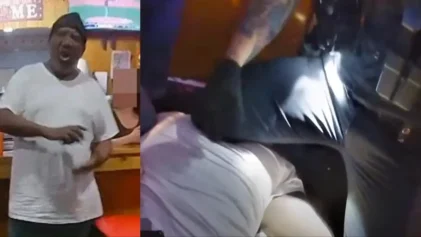The Supreme Court ruled in favor of a go-ahead to a new Trump administration policy of refusing green cards to immigrants who would be considered a burden on the country.
The justices voted 5-4 on Monday to reverse an order from the 2nd U.S. Circuit Court of Appeals to block the rule. The rule, which was proposed in August, would expand the definition of a “public charge” and make it harder for certain immigrants to get green cards. Traditionally, a person was considered a public charge if they “burdened” the government by relying on cash assistance for income. The new policy will include housing assistance, Medicaid and supplemental nutrition.
Anyone who requires more than 12 months of help in a three-year period would be included in the expanded definition. According to ABC News, approximately 544K people apply for a green card every year and 382K would be affected by the new policy. The new rule had been met with several court challenges, and Monday’s vote undid a nationwide injunction that had prevented implementation of the policy as the legal fight worked its way through the courts.
Ken Cuccinelli, acting secretary of the Department of Homeland Security, said the rule would promote “the ideals of self-sufficiency and personal responsibility, ensuring that immigrants are able to support themselves and become successful here in America.”
Critics of the policy believe it unfairly targets poor people.
“This decision will hurt immigrant communities,” Javier Valdes, co-executive director of Make the Road New York said in a statement to CNBC. Make the Road is one of the rule’s challengers. “The Trump administration’s public charge rules attack our loved ones and neighbors by imposing a racist wealth test on the immigration system.”
Justices Ruth Bader Ginsberg, Elena Kegan, Sonia Sotomayor and Stephen Breyer voted against the reversal and stated they would have let the block remain while the issue was in litigation. Prior to Monday’s ruling, a district judge in New York issued a nationwide injunction against the rule and it was upheld by the 2nd U.S. Circuit Court of Appeals. The Supreme Court’s decision effectively froze the injunction.
Justice Neil Gorsuch, joined by Justice Clarence Thomas, praised the court for blocking the injunction.
Gorsuch wrote, “if a single successful challenge is enough to stay the challenged rule across the country, the government’s hope of implementing any new policy could face the long odds of a straight sweep” of the lower courts.
Cuccinelli is glad the court ruled in the administration’s favor.
“It is very clear the U.S. Supreme Court is fed up with these national injunctions by judges who are trying to impose their policy preferences instead of enforcing the law,” Cuccinelli said during a news conference after the ruling.
New York solicitor general Barbara D. Underwood warned the policy “would radically disrupt over a century of settled immigration policy and public-benefits programs.”
“The rule’s vast expansion of ‘public charge’ — to include employed individuals who receive any amount of certain means-tested benefits for even brief periods of time — is a stark departure from a more-than-century-long consensus that has limited the term to individuals who are primarily dependent on the government for long-term subsistence,” she wrote in the opposition.
She added, “‘Public charge’ has never included employed persons who receive modest or temporary amounts of government benefits designed to promote health or upward mobility.”


